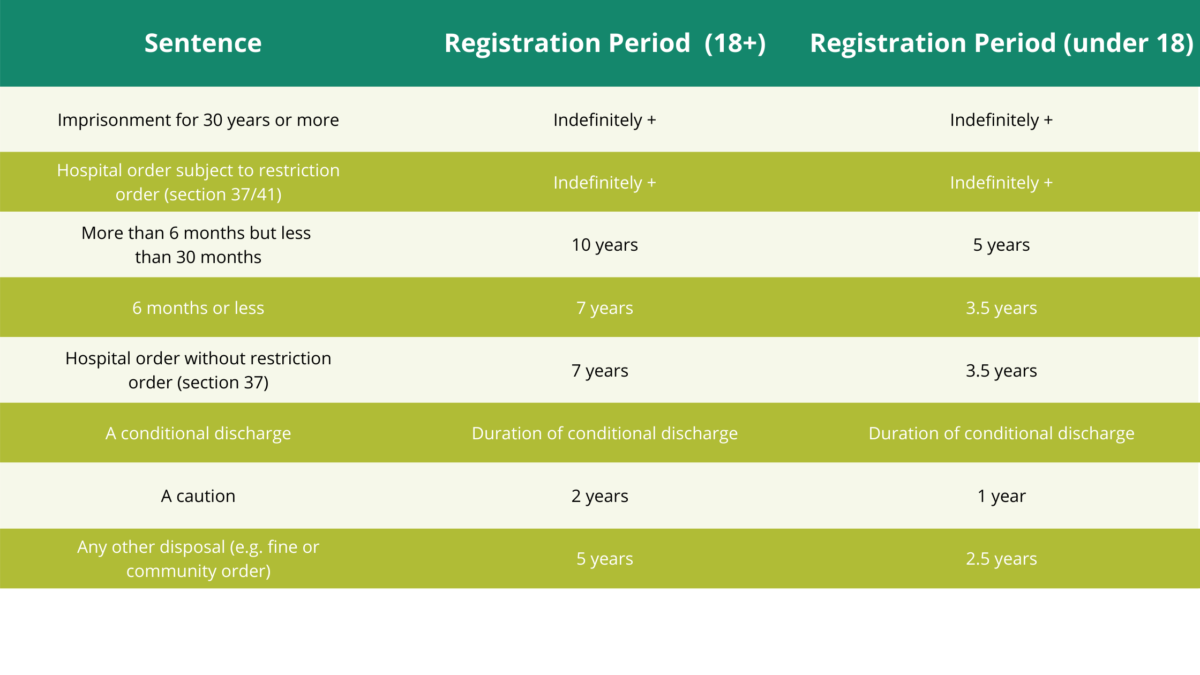Our Head of Crime and Regulatory, Rachel Fletcher, explains everything you need to know about the sex offenders register: what it is & what it means for those who are to be registered on it.
What is the Sex Offenders Register?
The Sex Offenders Register is a register containing the individuals cautioned, convicted, or released from prison for a sexual offence against both children and adults since 1997.
What offences put you on the Sex Offenders Register?
Offences that can put you on the Sex Offenders Register are listed under the Sexual Offences Act 2003. The definition is wide and covers a range of offences against both children and adults. It includes offences from voyeurism, possessing indecent images to sexual assault and rape.
What does being on the sex offenders register mean?
Being on the Sex Offenders Register means that an individual must register with the police, in person, within 3 days of their caution, conviction, or release from prison. The courts will notify the police of a conviction, and the individual must notify the police of certain information, including their name and address.
What are the notification requirements?
All convicted sex offenders must provide the following information to the police:
- Name and any aliases, including social media handles and gamer tags
- Address and any other addresses where they regularly stay
- Whether they live with a child or are staying in a household where a child lives for at least 12 hours a day
- Details of conviction
- Details of bank accounts to which they have access
- Date of birth
- National insurance number
- Details of any passports they may hold
Once registered, the public protection team, who are part of the police, will visit the offender at home to check that they are living there and undertake an assessment.
Offenders can expect the police to take photographs of them, and details added to the national police database. The police may make periodic home visits to check that people are where they say they are. The frequency of the visits will depend on the risk level.
High-risk offenders can also be subject to further police surveillance such as electronic tagging. This will involve multi-agency public protection panels which include the police, probation, social services and any other required agencies.
Failure to join the sex offenders register is committing a separate criminal offence. This could result in a prison term of up to 5 years.
Other requirements for a registered offender
- Registration must be renewed on an annual basis
- Changes of name or address must be disclosed to the police within 3 days
- When spending 7 or more days away from home, the police must be notified within 3 days
- The police must be notified when travelling outside of the UK
- Failure to notify the police of any of the above will also be a criminal offence
How long will I be subject to notification requirements?
This depends on the length of the sentence received. A custodial sentence of 30 months or more means that the offender will remain subject to indefinite notification requirements.
Can I have my registration reviewed?
A review can only take place once an individual has been on the register for 15 years, or 8 years in the case of a minor. An application can only be made if there is no sexual offender prevention order (SOPO).
Any application for removal from the sex offenders register will involve disclosing information about accommodation, employment, relationships, and attitude to offending. You must specifically show how your behaviour has changed and satisfy the police that there is no longer a risk.
What is a Sexual Harm Prevention Order (SHPO)?
A Sexual Harm Prevention Order can prevent you from having unrestricted access to the internet or unsupervised contact with children.
How long will I be on the Sex Offenders Register?
The length of time that you remain on the register and subject to notification requirements will depend on the sentence you receive.
We have recreated the table below from NACRO. You can find further information and guidance on their website.

Expert Legal Guidance
If you are facing allegations, you should speak to our sexual offence solicitors. Call us on 0161 969 3131 or leave your details by filling in the form below and we’ll call you back.